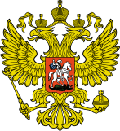Insights Into Landscape Perception and Appreciation Through Eye Movement Tracking
DOI:
https://doi.org/10.15826/Lurian.2024.5.2.2Keywords:
emotional perception; visual attention; Russians; landscape; eye-tracking; cross-cultural studiesAbstract
The variety of Russian natural scenery provides its natives with unique perceptive experience. Previous studies of this issue show cross-cultural differences among Russians and other cultures in their descriptions and emotional evaluation of landscapes. Our research aims to broaden the results of previous literature by exploring the connection between subjective judgements of landscapes by Russians and visual-spatial attention. Participants (n = 187; 136 females) were shown 102 pictures of native and foreign natural scenes and were asked to assess them by affective and location qualities using the semantic differential. During the picture presentation, eye movements were recorded with the usage of Tobii and Gazepoint eye-trackers. Our results suggest a link between individuals’ cognitive evaluation of landscapes and visual behavior. Duration of fixation correlated significantly with exotism and familiarity marks (p < .01) for the landscapes, indicating the novel visual information which is gained from an exotic scenery demands additional attention resources. The correlation was also found among average saccade duration, emotional and aesthetic assessments (p < .01). Therefore, the elongation of eye movement shifts might be a signifier of interest in the landscape. In the current study, we demonstrate the connection between visual attention and subjective judgment of a landscape image, which have not been shown previously for the Russian sample.





